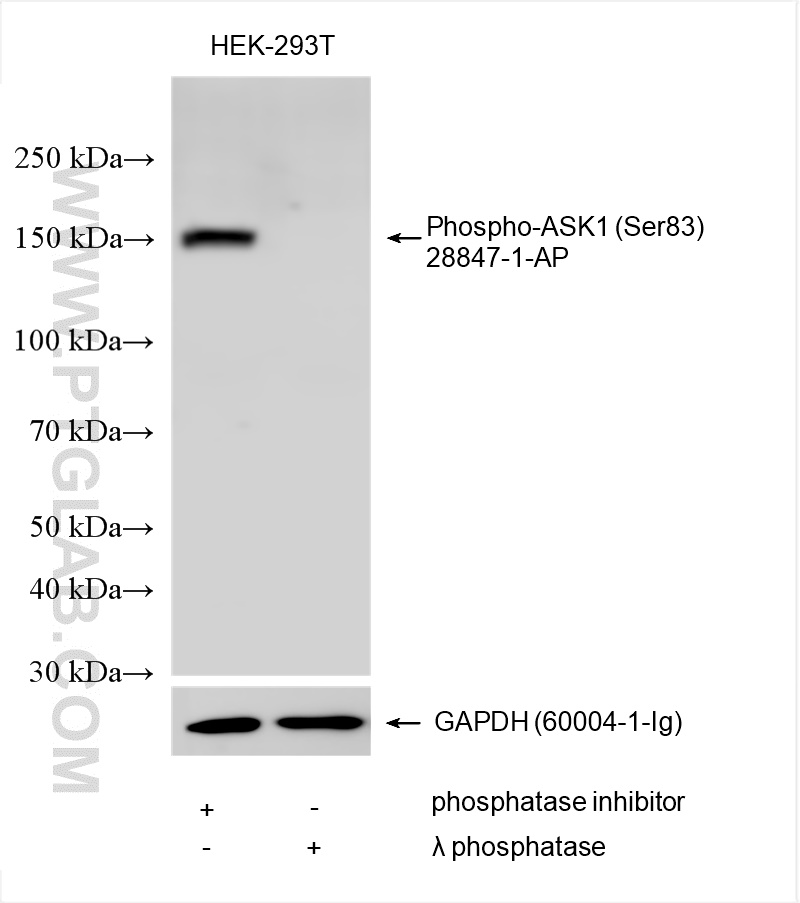验证数据展示
经过测试的应用
| Positive WB detected in | HEK-293T cells, λ phosphatase treated HEK-293T cells |
推荐稀释比
| 应用 | 推荐稀释比 |
|---|---|
| Western Blot (WB) | WB : 1:500-1:2000 |
| It is recommended that this reagent should be titrated in each testing system to obtain optimal results. | |
| Sample-dependent, Check data in validation data gallery. | |
产品信息
28847-1-AP targets Phospho-ASK1 (Ser83) in WB, ELISA applications and shows reactivity with Human samples.
| 经测试应用 | WB, ELISA Application Description |
| 经测试反应性 | Human |
| 免疫原 | Peptide 种属同源性预测 |
| 宿主/亚型 | Rabbit / IgG |
| 抗体类别 | Polyclonal |
| 产品类型 | Antibody |
| 全称 | mitogen-activated protein kinase kinase kinase 5 |
| 别名 | ASK 1, ASK1, MAP3K5, MAPK/ERK kinase kinase 5, MAPKKK5, MEK kinase 5, MEKK 5, MEKK5, Phospho-ASK1 (Ser83) |
| 计算分子量 | 155 kDa |
| 观测分子量 | 150 kDa |
| GenBank蛋白编号 | BC054503 |
| 基因名称 | ASK1 |
| Gene ID (NCBI) | 4217 |
| RRID | AB_3085337 |
| 偶联类型 | Unconjugated |
| 形式 | Liquid |
| 纯化方式 | Antigen affinity purification |
| UNIPROT ID | Q99683 |
| 储存缓冲液 | PBS with 0.02% sodium azide and 50% glycerol , pH 7.3 |
| 储存条件 | Store at -20°C. Stable for one year after shipment. Aliquoting is unnecessary for -20oC storage. |
背景介绍
ASK1(Apoptosis signal-regulating kinase 1) is also named as MAP3K5, MAPKKK5, MEKK5 and belongs to the MAP kinase kinase kinase subfamily. ASK1 is reportedly regulated by phosphorylation and dephosphorylation at four different phosphorylation sites. ASK1 activation is accompanied by phosphorylation of Thr845 and dephosphorylation of Ser83, Ser967, and Ser1034. STRAP actually decreased Thr838 (corresponding to Thr845 in mice) phosphorylation but increased Ser83 and Ser967 phosphorylation, an effect that would inactivate ASK1. (PMID: 19880523)
实验方案
| Product Specific Protocols | |
|---|---|
| WB protocol for Phospho-ASK1 (Ser83) antibody 28847-1-AP | Download protocol |
| Standard Protocols | |
|---|---|
| Click here to view our Standard Protocols |
